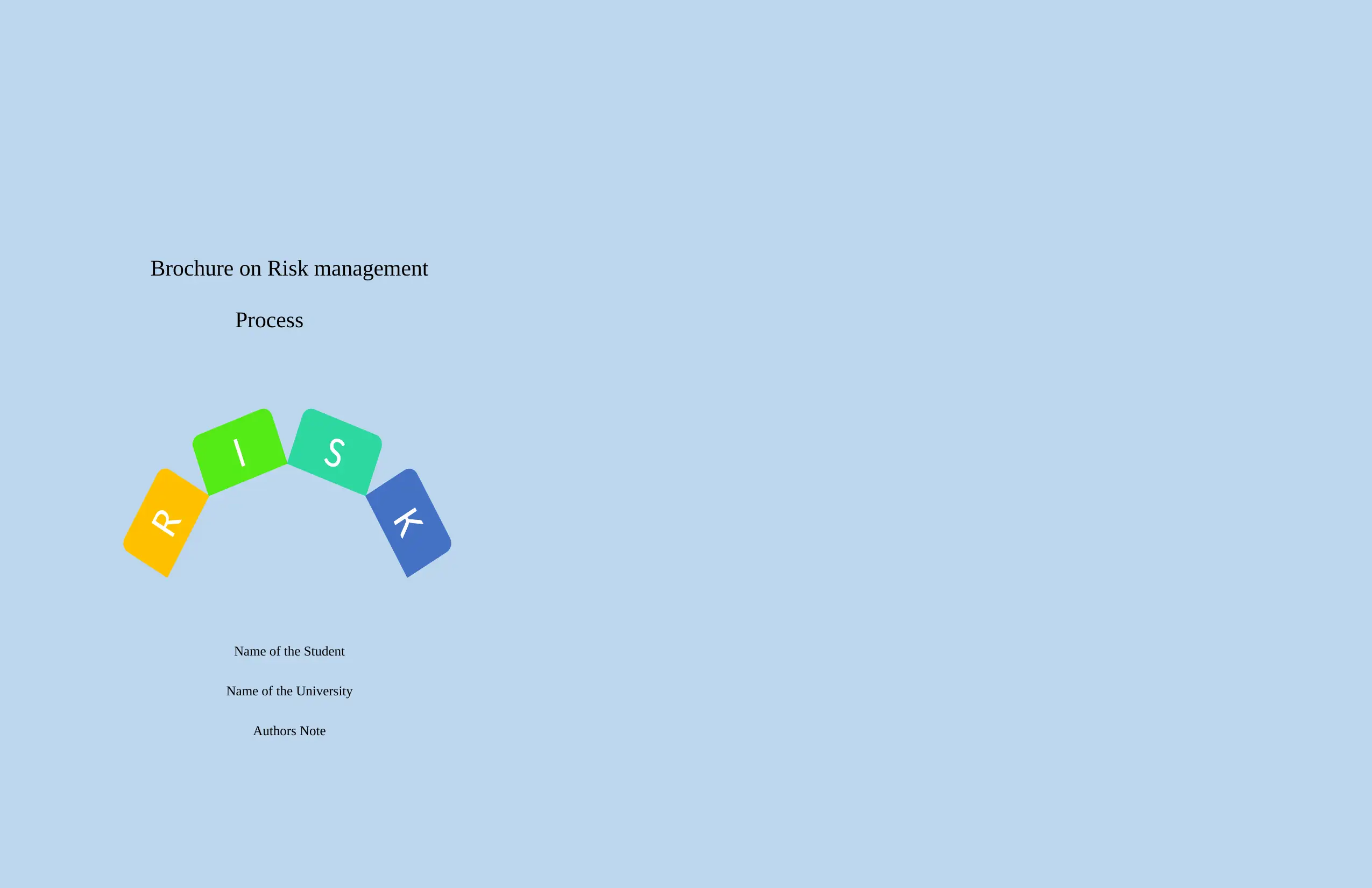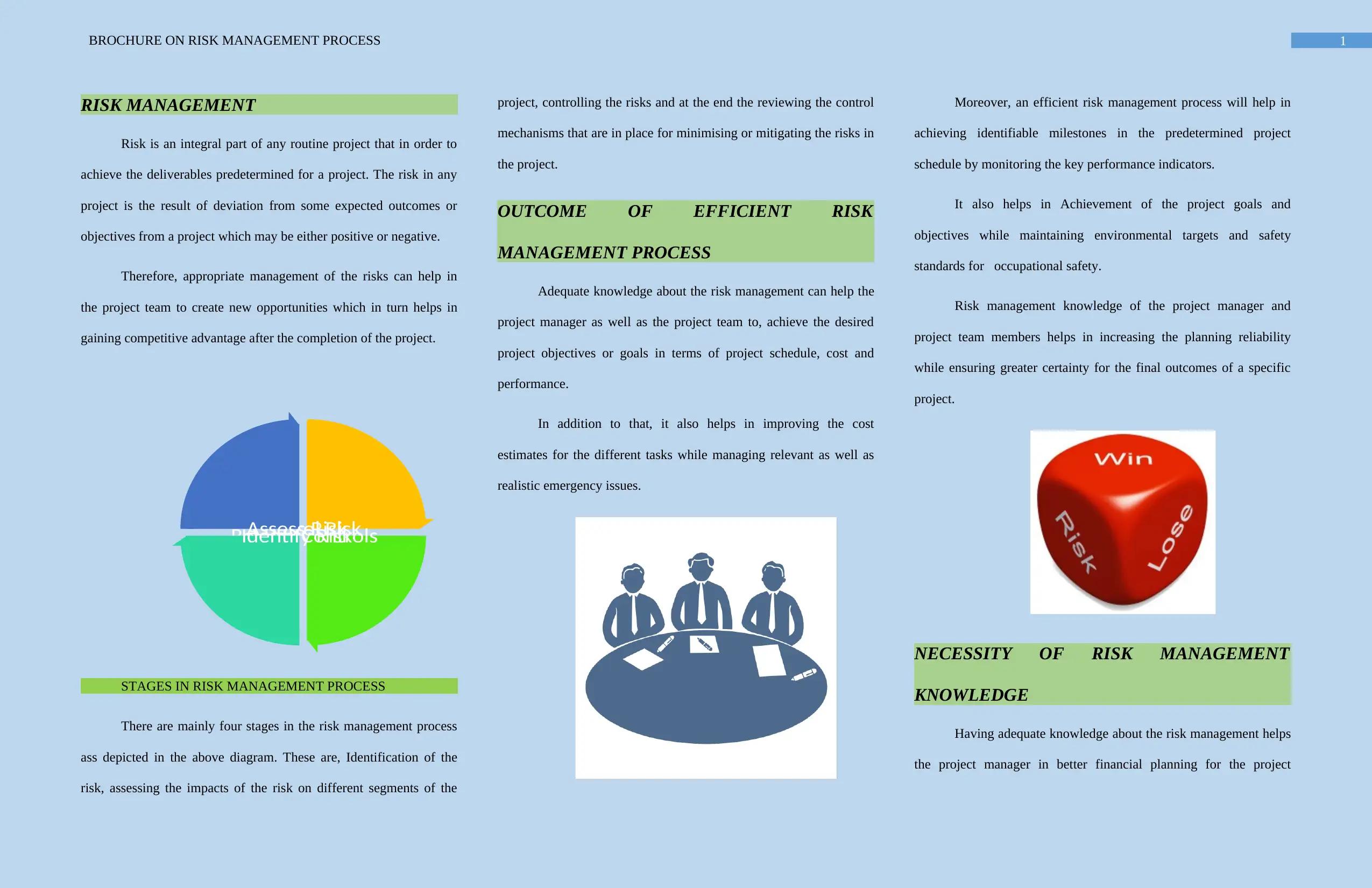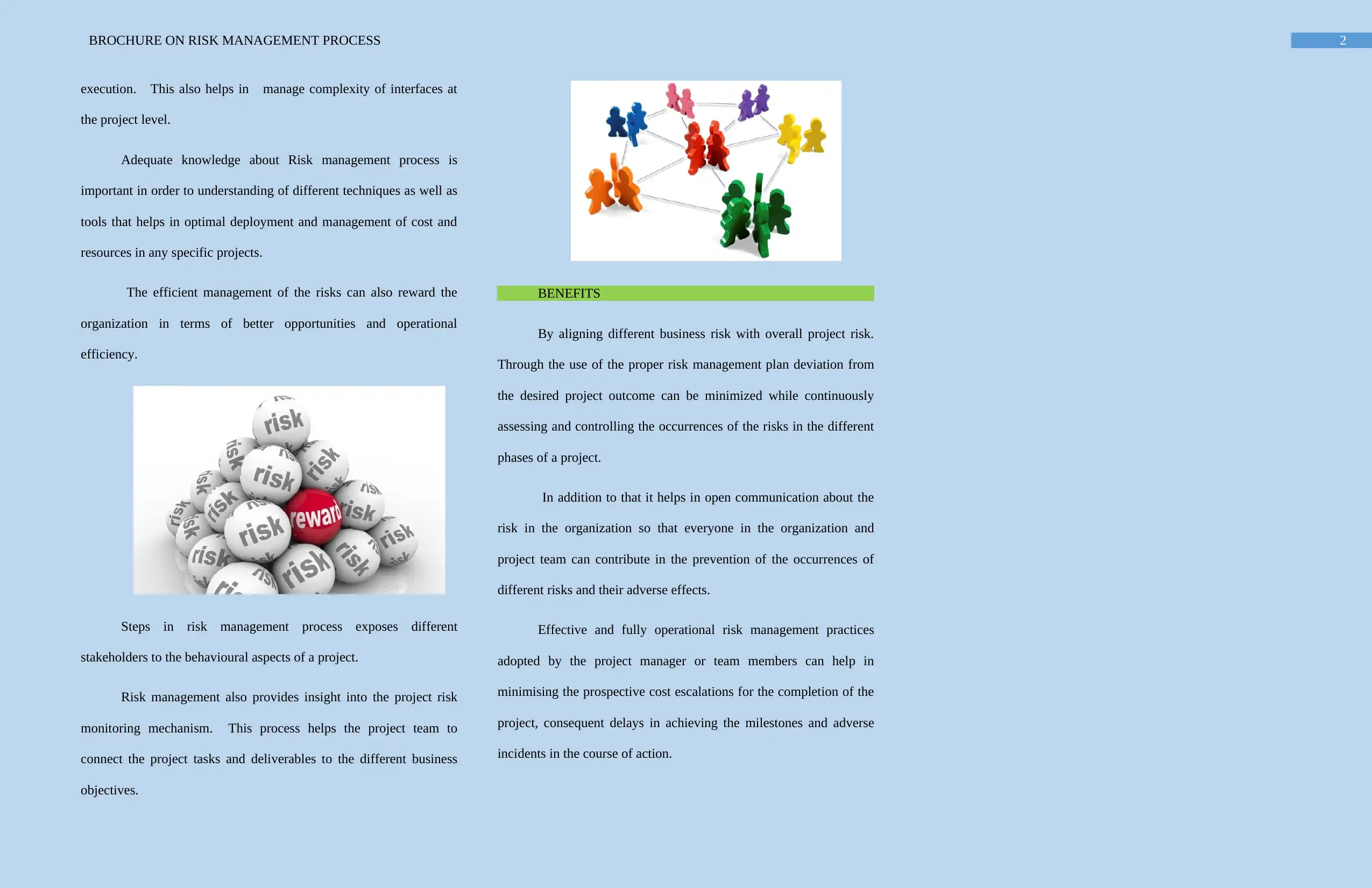Project Risk Management Process Brochure: A Comprehensive Guide
VerifiedAdded on 2020/04/01
|3
|596
|131
Report
AI Summary
This report is a brochure on risk management, detailing the risk management process. It outlines the stages of risk management, including risk identification, assessment, and control, highlighting the benefits of efficient risk management. The brochure emphasizes the importance of risk management knowledge for project managers and teams, discussing how it aids in financial planning, managing project complexity, and achieving project objectives. It also covers the alignment of business and project risks, communication about risks, and the minimization of cost escalations and delays. The brochure focuses on the practical application of risk management principles to enhance project outcomes and organizational efficiency.
1 out of 3










![[object Object]](/_next/static/media/star-bottom.7253800d.svg)